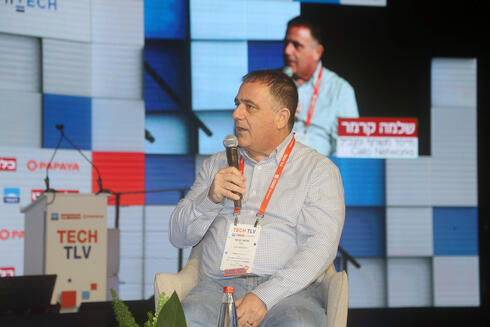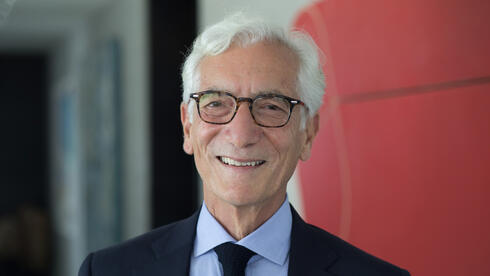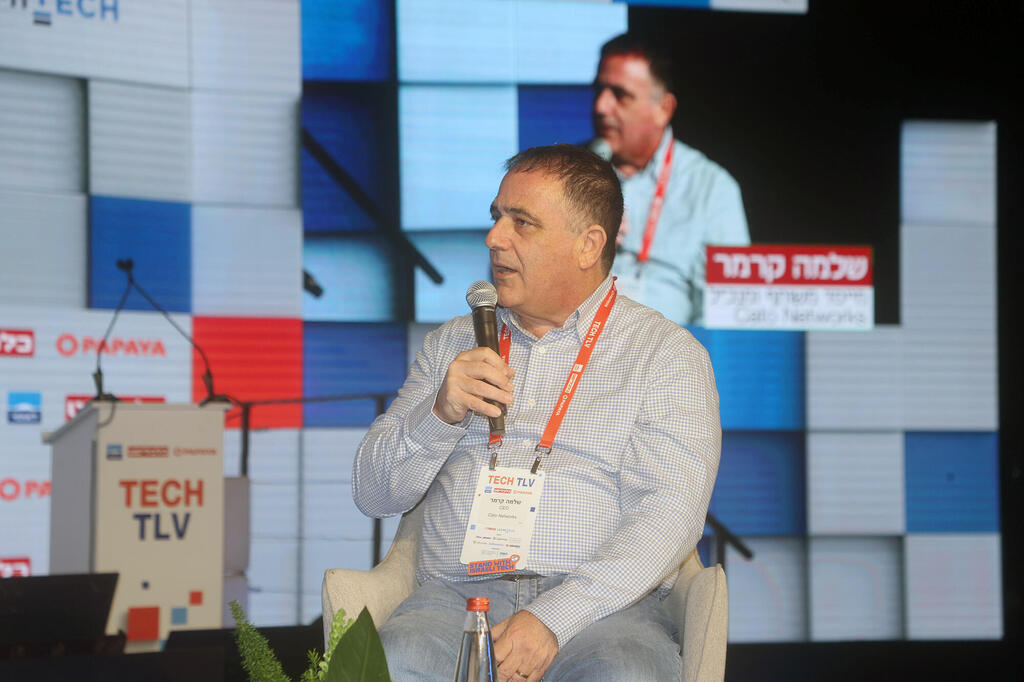
Tech TLV
Shlomo Kramer: "Israeli cyber is still a global brand, but security, democracy, and stability have been severely damaged"
The high-tech entrepreneur, co-founder, and CEO of Cato Networks spoke about the numerous challenges faced by Israeli tech over the past year, from the judicial reforms to the ongoing war
"I am deeply concerned about the state of Israeli high-tech. The judicial coup undermined investors' confidence in the market, and of course the war is not aiding investors' confidence, and money is the oxygen of high-tech," said Shlomo Kramer, high-tech entrepreneur, co-founder, and CEO of Cato Networks, at Calcalist's Tech TLV conference held on Monday in collaboration with Bank Leumi and PAPAYA.
In a conversation with reporter Sophie Shulman, Kramer added, "Regarding the government’s judicial coup, I previously said that unlike countries like Poland or Hungary, it is impossible to take our country from one point to another, and for it to be completed peacefully.
"We are in such a violent and brutal region that such a rift provided an opportunity for our enemies. This was a big mistake on their part. As a techie, I can say that the companies I am involved in have demonstrated extraordinary resilience. But once the amount of investments decreases due to the increase in the level of risk, it will be very difficult. The world is currently very likely heading for a soft landing after the economic crisis, and high-tech in Israel is not at all in this situation."
Kramer further warned that the judicial coup is still ongoing. "We are still at war, and it should be noted that the same revolutionary processes continue," he said. "It wasn't just in terms of changing the system of the regime, but also at the layer of coalition budgets, jobs, the conduct of ministers and those in authority vis-à-vis bodies like the army. There are many layers that are affected by this. The legal layer also continues to be an issue; no new supreme judges have been appointed. The whole thing continues to happen during the war.
"Nevertheless, the war worries investors much more. In Cato, 10% of the workers were in the reserves, and another 10% declared that they were unable to work. Of the remaining 80%, a very large part had difficulty functioning. This is the second crisis we are going through. The previous one was the coronavirus, and it is infinitely more serious in terms of our functioning. Half of the company does not function or partially functions, and half continues to run at 100 km/h. How do you balance that and allow the company to keep moving forward? It requires a lot of effort."
However, Kramer expressed cautious optimism about the future: "I don't think we have been defeated. We are winning this fight, and we will continue to win. The most important thing is unity, and anything that causes division and internal conflict will be an opportunity for our enemies. There is a leadership that nurtures this division. I hope that after the war is over, we will hold elections and elect a unifying and not dividing leader. I am not thinking of going into politics. I am a very average politician, and I think my Zionism is to make Cato succeed."
Kramer also referred to the status of Israeli cyber. "Israeli cyber is still a global brand," he said, and hastened to add, "The problem is the investment environment, security, democracy, and stability that have been severely damaged in the last year."
Kramer also spoke about a possible IPO for Cato: "An IPO has two components, the company and the market. As a company, we plan to be a large and leading company, and therefore also a public company. We continue to grow even in these difficult times at very high rates of 60%. But this is a process that will take time. Beyond that, there is also the component of the market, and we cannot control that."














